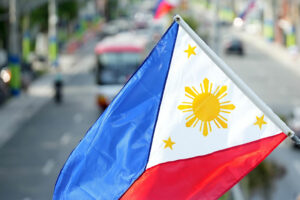THE PHILIPPINES saw an improvement in its budget transparency score in the 2023 Open Budget Survey (OBS), making it the “most fiscally transparent” country in Asia.
In the survey by the International Budget Partnership (IBP), the Philippines’ transparency score went up by seven points to 75 out of 100 from 68 in 2021.
This surpassed the government’s target score of 71 under the Philippine Development Plan 2023-2028 and was well above the global average of 45.
The Philippines’ score placed it at 15th place out of 125 countries. In the 2021 OBS, the country ranked 19th out of 120 countries.
“[The] Philippines has increased the availability of budget information by publishing the midyear review online in a timely manner,” the IBP said in the report.
The Philippines’ budget transparency score of 75 was higher than its Southeast Asian peers like Indonesia (70), Thailand (60), Vietnam (51), Malaysia (48), Cambodia (43), Timor-Leste (37), and Myanmar (3).
To further improve budget transparency, the IBP said the Philippines must sustain and institutionalize the timely publishing of its midyear review timely online, including updated spending estimates.
“The DBM (Department of Budget and Management) will continue its best practices in ensuring a transparent, participatory, and accountable people’s budget,” Budget Secretary Amenah F. Pangandaman said in a statement.
However, the Philippines received a score of 33 out of 100 on public participation in the budget. This was still better than the global average of 15, and highest among Southeast Asian peers.
This pillar looks into the executive, legislature, and its main audit institution’s practices in line with the Global Initiative for Fiscal Transparency’s Principles of Public Participation in Fiscal Policies.
To enhance public participation in the budget process, the IBP said there is a need to engage vulnerable and underrepresented sectors.
“To further strengthen public participation in the budget process, [the DBM] should also prioritize expanding mechanisms during budget formulation and implementation to engage any civil society organization or member of the public who wishes to participate,” it said.
It also called on lawmakers to conduct public consultations before approving the budget, and allow the public or civil society organizations to testify during audit report hearings.
Meanwhile, the Philippines received a score of 83 out of 100 in budget oversight, noting that Congress and audit agencies provide “adequate oversight” in monitoring the country’ budget use.
“To strengthen independence and improve audit oversight by the Philippines’ Commission on Audit…. [it must] ensure that audit processes are reviewed by an independent agency,” IBP said.
Rizal Commercial Banking Corp. Chief Economist Michael L. Ricafort said the government must ramp up its digitization efforts to ensure budget transparency.
“Further digitization of National Government and local government processes and transactions internally and with the general public would help improve transparency and overall rankings,” he said in a Facebook Messenger chat.
Institute for Leadership, Empowerment, and Democracy, Inc. Executive Director Zy-za Nadine M. Suzara, who also worked on the data gathering of the survey, said confidential funds hamper budget transparency.
“There’s lack of transparency in the use of confidential funds and it really isn’t the best example in terms of promoting, better yet, ensuring transparency,” she said in a Viber message.
“Though there are guidelines on how to use the confidential funds, we have seen since the Duterte administration how the allocation and use of them by non-security agencies have been so prone to abuse,” she added.
There are at least P9-billion confidential and intelligence funds in the 2024 national budget. — Beatriz Marie D. Cruz
